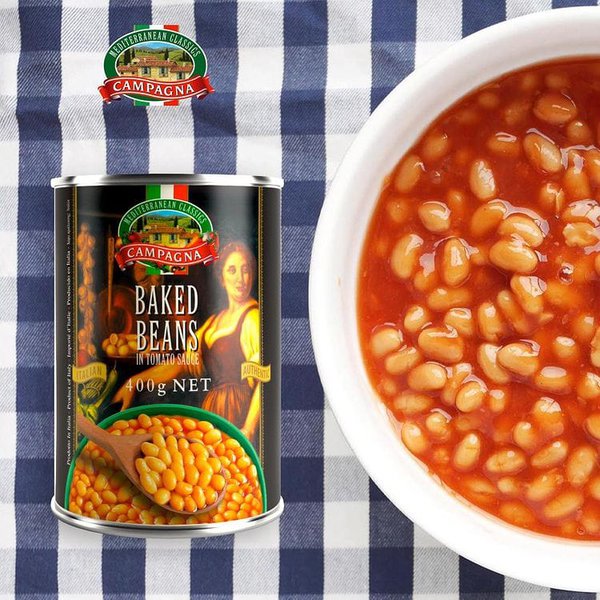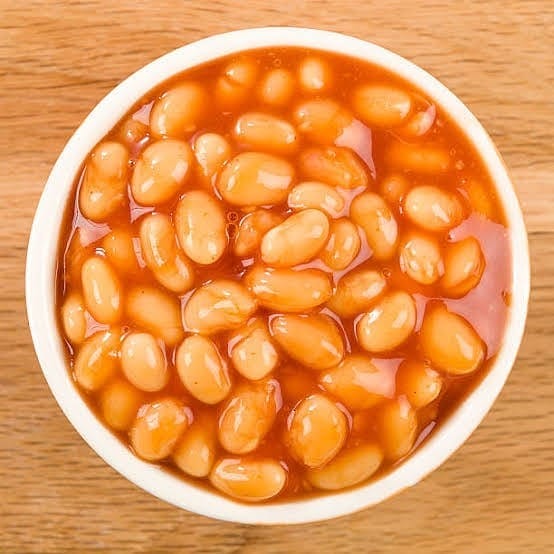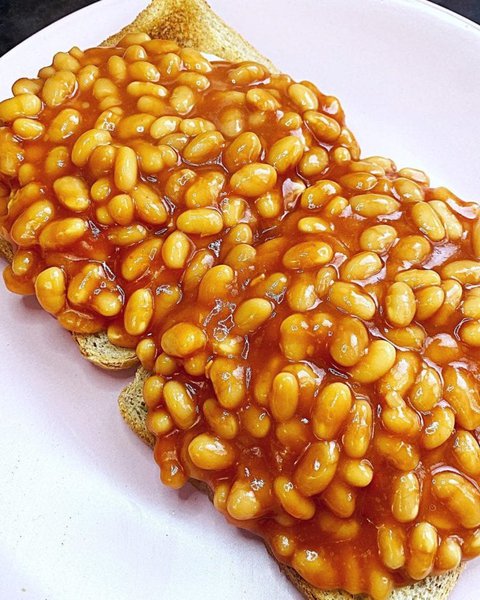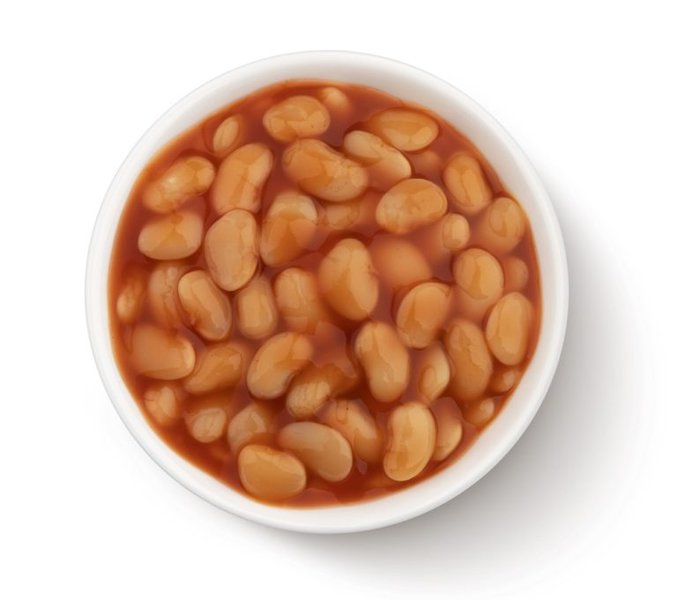So you were out on a picnic with your friends, and on the menu for lunch was baked beans with some slices of cornbread. Naturally, your pup seems interested in this side dish, and everyone cannot wait to make a toast. But as a conscious pet parent, your concern is whether it is appropriate to serve baked beans to your canine. Can dogs eat baked beans?
No, it is not safe to serve baked beans to your furry friends. That is primarily because of its high sugar content and seasonings, such as garlic, tomatoes, onions, salt, and cumin that are found to be dangerous to dogs.
While they are highly proteinous and rich in fiber, you should be hesitant to feed your canine with any legume. Most legumes require special preparations to make them fit for a dog’s intestine. But let’s begin by checking out what would happen if you fed your dog with this delicacy.
Can I Give My Dog Canned Baked Beans?

No, you should not give your dogs canned baked beans. First, canned foods most often contain preservatives to keep them intact, and these preservatives are damaging to your pup’s health. Second, baked beans, as mentioned earlier, are high in sugars and salts – an excellent recipe for pancreatitis and several other sicknesses in canines.
Nevertheless, assuming you are in a pinch and the only option available is canned baked beans, you should endeavor to wash the beans thoroughly under running water for at least two minutes. That should take away a substantial part of the salt and sugar and make it less risky to your pup.
> Are Legumes Bad For Dogs?
Not all legumes are bad for dogs; it depends on the variety in question. For instance, beans are an excellent example of legumes.
Many varieties such as black beans, green beans, and soybeans are OK for pups. Legumes are rich in many vitamins, protein, and fiber.
However, since dogs do better with animal proteins than plants, they should only consume minimal legumes in their diet. Some appropriate legumes to include in your pooch’s diet include lentils, chickpeas, and peas.
What Happens If Dogs Eat Baked Beans?

Depending on the quantity of the baked beans and your dog’s overall health, your pup’s reaction to it may differ. If it is small and a one-time consumption, your dog should be fine. However, habitual consumption of baked beans by pups can cause pancreatitis.
A diabetic dog should not taste baked beans even by mistake. Of course, this would worsen their already fragile health. But pups with no diabetic concern can quickly add unhealthy weight if they regularly or intermittently feast on baked beans. The reason has been mentioned earlier: baked beans contain a lot of sugars.
Besides high sugar content, baked beans also contain plenty of sodium, an additive that dogs shouldn’t eat. So, when your canine feeds on baked beans, their propensity to sickness increases, and they also become susceptible to dehydration.
As you probably know by now, preventing canine ill-health is by far safer and better than trying to cure it. Apart from the cost, it hurts to see your furry friends in a bad mood. The saturated fat content of baked beans is high, thanks to the ingredients, and this means that your pup’s digestive system will have to do extra work to break it down.
What Beans Are Toxic To Dogs?
Fava or broad beans are generally unsafe for dogs because they cause abdominal pain, diarrhea, and vomiting. As such, whether cooked, baked, or dried, they should not be fed to dogs.
But aside from broad beans, other varieties of beans, which are toxic to your canine and best to be avoided, include:
- Chili beans – They contain spices, onions, and garlic that are not friendly to a dog’s gut.
- Canned beans – They contain preservatives and high sodium content.
- Raw kidney beans – They contain high lectin content that is toxic to pups.
- Refried Beans – These beans are toxic to dogs because of their seasonings such as garlic, cumin, and chili powder, in addition to plenty of preservatives.
- Coffee beans – These beans can kill your canine or even lead to a neurological disorder due to the caffeine content.
- Baked beans – They are high in fats, sugar, seasonings and often cause pancreatitis.
Beans can indeed be part of a dog’s diet, especially when prepared correctly. In fact, some of the dogs’ foods sold in stores contain beans and other vegetables as their source of protein and fibers.
But the burning question would be on how to properly prepare beans for dogs? For example, are dogs better off eating cooked beans than baked ones? The next section takes a look at that.
Can Dogs Eat Cooked Beans Instead of Baked Beans?
Yes, dogs can eat cooked beans in place of baked beans. While most raw beans contain phytohemagglutinin, which is toxic to dogs, cooking beans reduce this toxin to a harmless level. It’s even better if you soak the beans overnight before cooking them.
Even at that, beans should not constitute the bulk of food you give to your furry friends. Yes, they are excellent sources of fiber and proteins, but dogs need other nutrients that other food types offer. Also, since beans contain high calories, limiting it to just 10% of your dog’s total food consumption every day would be helpful.
That said, while preparing beans for your pet, you need to follow some safety guidelines. These guidelines include:
- Ensure thorough washing and cooking before serving ANY beans to your dog. The only exception to this rule is green beans which you can serve fresh without issues.
- Again, except for green beans, you should always mash your cooked beans before presenting them to your pup. That’s because most dogs are not good at chewing food.
- Plain beans are the best; avoid adding seasonings or salt to make them taste better.
- If you’re not sure of your pup’s reaction to legumes, start slowly with them. Rushing pups with beans or other legumes can lead to a serious gastrointestinal problem.
- To save cost and be sure of what you’re feeding to your canine, buy dried beans in bulk and not canned ones.






